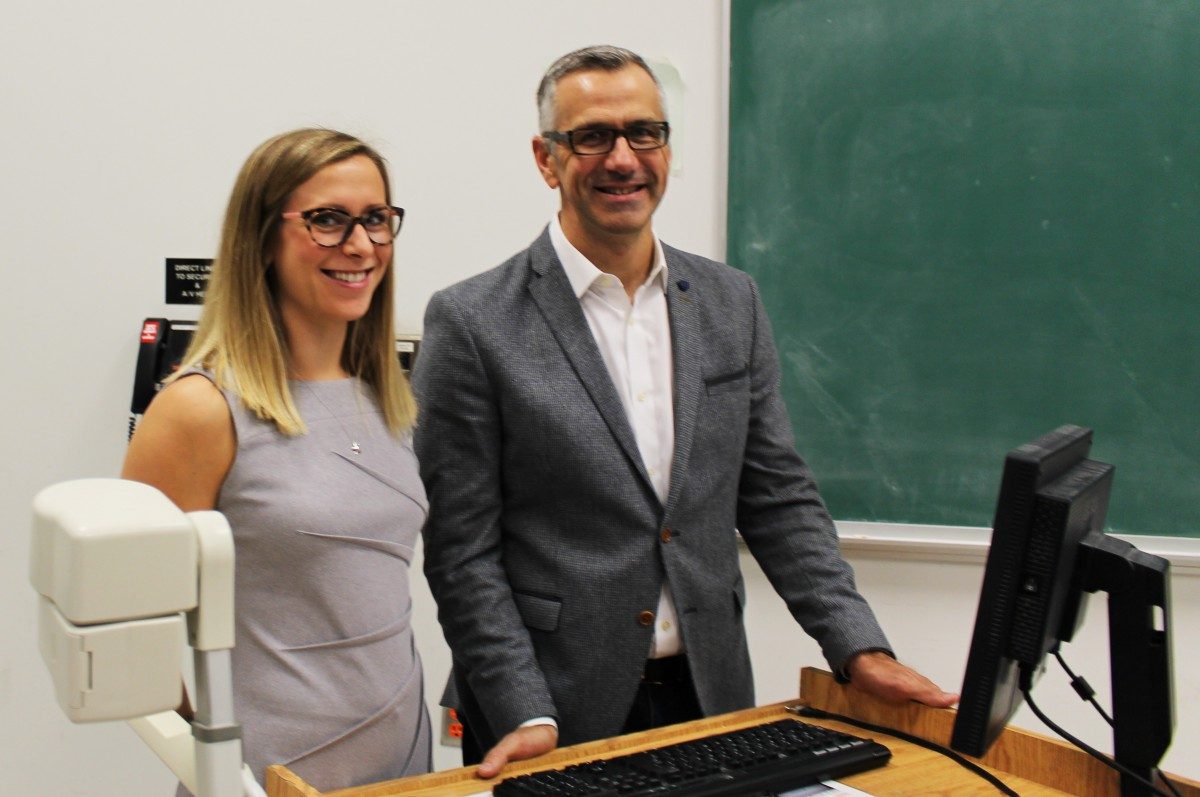
Dr. Jena Hall and Dr. Damon Dagnone recently hosted workshops on how to approach medical training changes at the Max Rady College of Medicine.
Navigating changes in medical education
Medical training in Canada is going through a major change, one that is a positive step toward aligning education with the needs of today’s world, according to Dr. Damon Dagnone, a competency-based medical education (CBME) specialist from Queen’s University in Kingston, Ont.
Dagnone visited the Bannatyne campus in October for a series of workshops on navigating this change, along with Dr. Jena Hall, a third-year obstetrics and gynecology resident at Queen’s University.
Competency by Design (CBD) is the Royal College of Physicians and Surgeons of Canada’s CBME model, which it recommended that Canadian medical schools adopt several years ago. Under CBD, trainees must “achieve required competency in clinical tasks” before progressing to the next level, rather than completing a set number of hours as it is in the old model, Dagnone said.
In 2017, Queen’s University became Canada’s first medical school to transition all of its 29 postgraduate training programs to this “outcomes-based” approach, an initiative led by Dagnone.
“We went on an accelerated path to this change, whereas in the rest of the country every university is doing a few programs every year, sort of staggered over time,” he said.
Dagnone is an associate professor of emergency medicine and CBME faculty lead. Hall, who has a master’s degree in education, co-founded and co-chairs the CBME resident subcommittee at Queen’s. The pair were invited to the University of Manitoba to share their experiences and talk about the curricular change and what has worked for them in terms of educational leadership.
“It’s about sharing that with the leaders here as they move forward, and sort out how to operationalize and implement change,” Dagnone said.
More than 30 people attended two workshops, including representatives from almost every Royal College specialty residency training program in the Max Rady College of Medicine, along with team members from the Office of Educational and Faculty Development (OEFD) and Postgraduate Medical Education (PGME).
There was also a session specifically for medical residents that drew attendees from the neurosurgery, medical oncology, internal medicine, anatomical pathology, psychiatry, vascular surgery, general internal medicine, emergency medicine, obstetrics and gynecology, critical care medicine and neonatal perinatal medicine programs.
Dr. Cheryl ffrench, CBD lead for the U of M’s emergency medicine department, said that hearing about the challenges that Queen’s University faced was useful for her and other participants.
“Change is always challenging, but at the end of the day I think CBD will help us better evaluate and provide feedback to our trainees,” she added.
The U of M began implementing its CBD curriculum in 2017 with the anesthesia and otolaryngology programs. Emergency medicine, medical oncology, nephrology, surgical foundations and urology followed earlier this year. Eleven more programs will make the switch in July 2019. Over the next few years, each of the college’s 49 Royal College specialty training programs will transform their curriculum from a traditional time-based program. This work will be supported by OEFD and PGME.
Dagnone said it will be about a 10-year process for faculties of medicine from across the country to fully transform to the new system.






